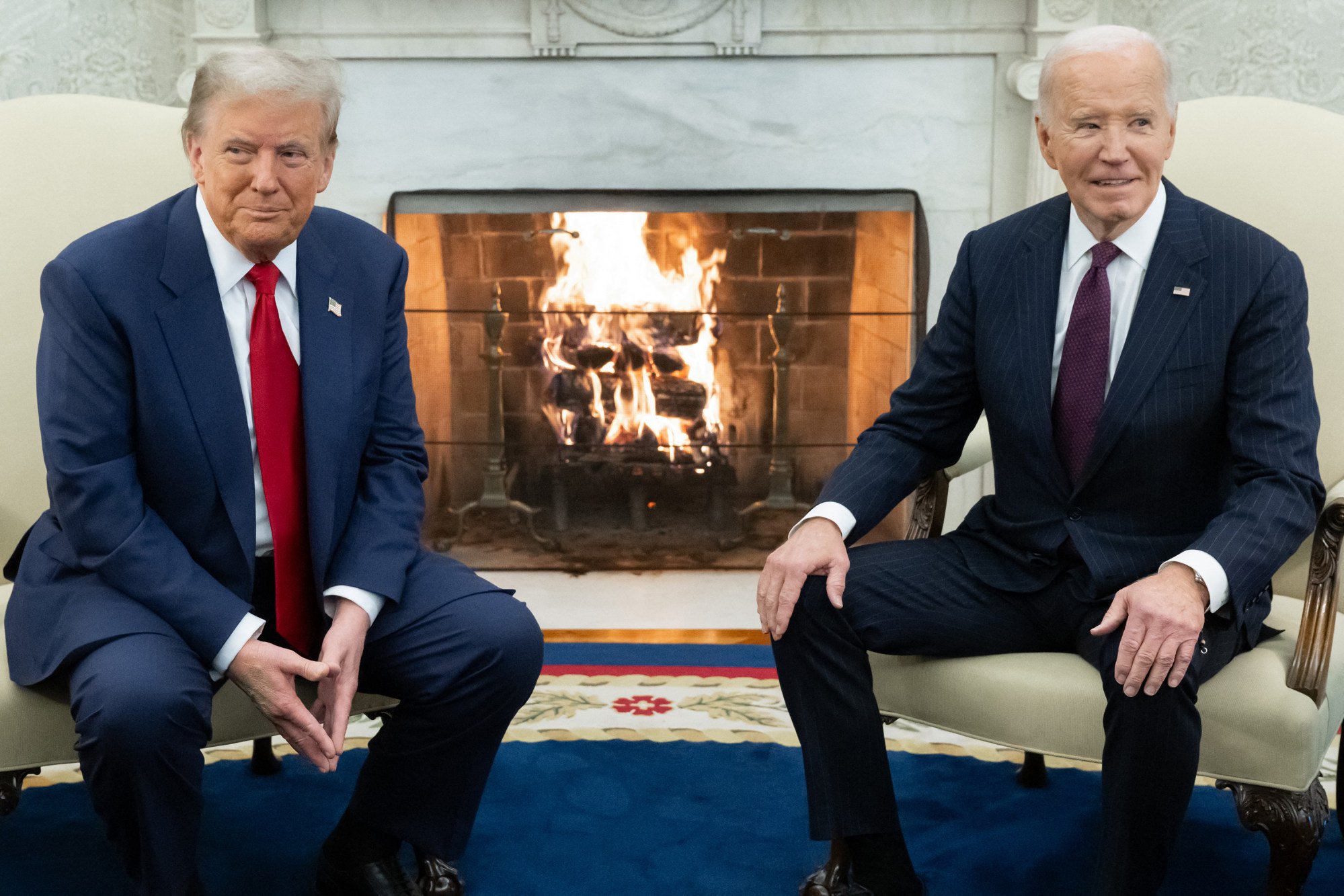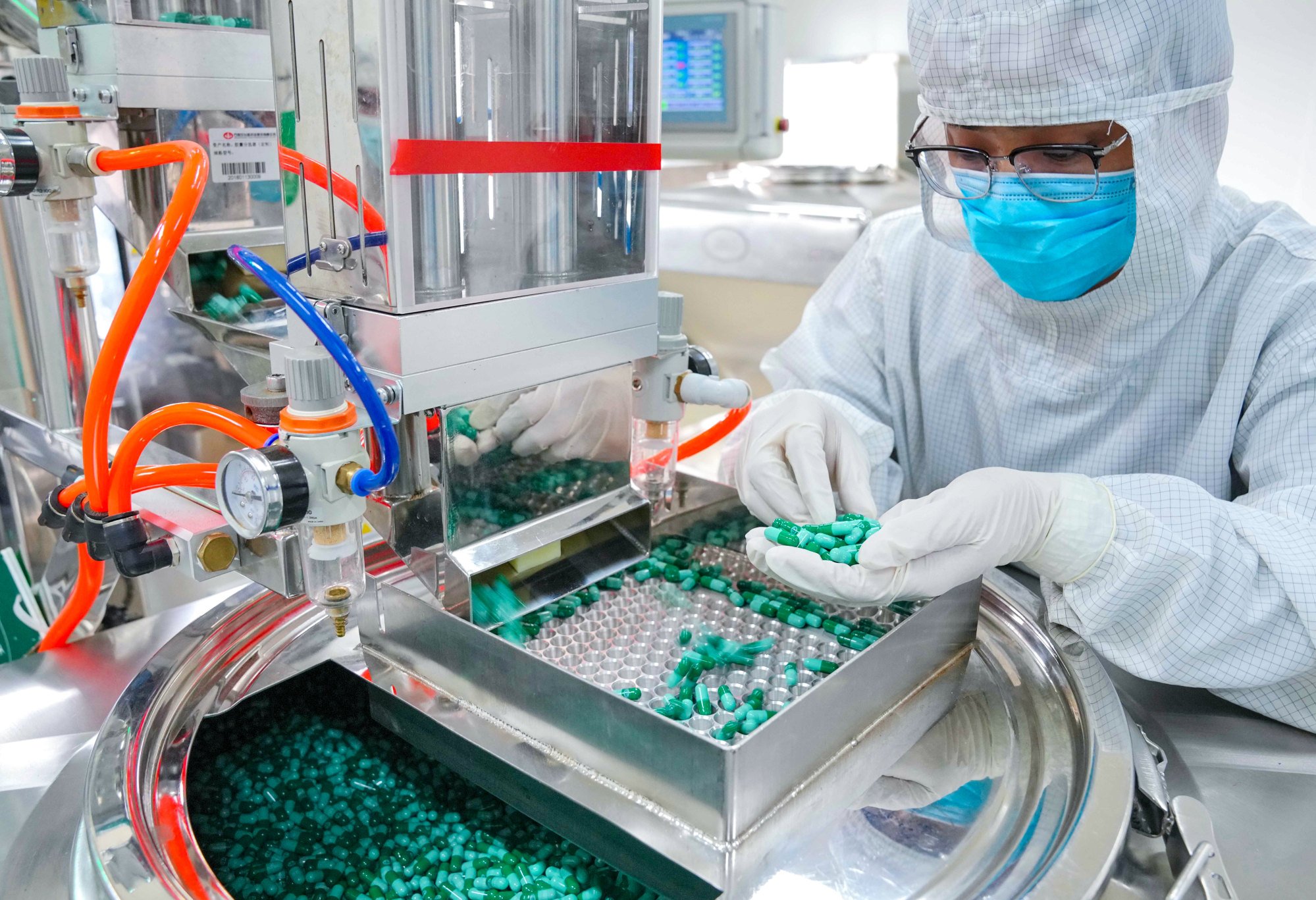The US profits of Chinese biotech firms, including makers of medical devices, are under threat from the incoming Trump administration’s plans to increase tariffs on Chinese products, as well as a bill that would limit government-funded sourcing of Chinese research and manufacturing services, according to analysts.
However, Chinese companies’ efforts to expand product development and sales of high-value products in China and other overseas markets would cushion the blow, they said.
President-elect Donald Trump has proposed import duties of 60 to 100 per cent on Chinese goods.
Do you have questions about the biggest topics and trends from around the world? Get the answers with SCMP Knowledge, our new platform of curated content with explainers, FAQs, analyses and infographics brought to you by our award-winning team.
“Service providers and [device] manufacturers are likely to be hit the hardest,” said Yurou Zheng, a Morningstar equity analyst. “Many Chinese medical-device makers have been already prioritising emerging markets for global expansion ... partially because the US market is already very competitive and mature.”
Chinese medical-device makers active in the US, the world’s largest market for such products, have been subject to a 25 per cent tariff since July 2018 when the previous Trump administration and Beijing were embroiled in a tit-for-tat trade war. The Biden administration kept the tariff in place.
Rising manufacturing costs have also affected Chinese device makers, pushing them to move up the value chain quickly to maintain competitiveness, said Grace Wang, a Shanghai-based partner of L.E.K. Consulting who focuses on the medical-technology sector.
“Given rising labour costs, it is difficult for China to maintain strong growth on the basis of being a low-cost manufacturing centre,” she said. “Chinese companies have in recent years consciously raised their research and development investments to pivot towards innovation, and one key advantage is their fast decision-making.”
Shenzhen Mindray Bio-Medical Electronics, China’s largest medical-device supplier, is an example. It has maintained momentum in the US thanks to a strategy change, it said.

“By continuously expanding high-end customers and increasing their revenue contribution, the profitability of Mindray’s US business has steadily improved over the past few years, making the US one of Mindray’s most profitable markets globally,” the Shenzhen-listed firm said during an online investors’ roadshow in July.
Mindray said its direct sales team now covers more than 80 per cent of the so-called integrated delivery network in the US, comprising healthcare providers and payers.
To manage tariff risks, the company is rapidly expanding overseas production with 10 new facilities, including one in Mexico that is expected to be operational by the end of this year.
The US will contribute around 6 per cent of Mindray’s revenues this year, said Cui Cui, head of healthcare research in Asia, excluding Japan, and Australia with Jefferies. This compares with around 10 per cent in 2018, according to a Founders Securities report.
“We don’t see the US market as a key growth driver for Mindray, which is actively exploring in-vitro-diagnostics export opportunities to the European Union and emerging markets, with manageable impact from a Trump presidency,” Cui said.
Damage from higher US tariffs could be offset by domestic import-substitution and equipment-upgrade initiatives as part of economic stimulus policies from Beijing, she added.
As Mindray’s domestic sales grew last year, the proportion of total revenue from overseas sales fell to 38.8 per cent from 45 per cent in 2018. The company’s products are sold in more than 190 countries and regions.
In the drug development and manufacturing business, impending US legislation that aims to ban government-funded programmes from contracting with Chinese biotech firms casts a long shadow over service providers.
In September, the US House passed the Democrat-initiated Biosecure Act, aimed at reducing US reliance on Chinese development and manufacturing services to cut the risk of American health data going to Beijing. The act needs to clear the US Senate before it can be signed into law by the president.
It targets five Chinese firms – BGI Group, Complete Genomics, MGI, Wuxi AppTec and Wuxi Biologics – and sets out an inter-agency process for identifying more. Opposition from the US biotech industry resulted in an extension of the deadline for halting existing contracts to January 2032.

Wuxi Biologics said it does not collect human genomic data in any of its businesses around the world and will not pose a security risk to the US, which contributed 58 per cent of its revenue in the first half.
The law is likely to pass the Senate, but the scope is unlikely to expand beyond federally funded projects and health-insurance coverage, Cui said, citing better relations with US pharmaceutical firms among the incoming Republican Senate majority.
“Trump’s businessman nature could result in more flexibility in business-oriented decisions,” she said, adding that the competitiveness of Chinese contractors can deliver cost savings of 30 to 60 per cent to US biopharmaceutical firms.
More from South China Morning Post:
- Is biotech the next battleground in US-China decoupling?
- Shanghai to support local biopharma firms’ overseas push, regulatory product compliance
- WuXi AppTec, WuXi Biologics surge in Hong Kong as biotech firms put some operations for sale
- Wuxi AppTec and Wuxi Biologics drop on passage of US bill targeting China biotech firms
- Bill restricting US contracts with Chinese biotech firms among first to pass House in ‘China Week’
For the latest news from the South China Morning Post download our mobile app. Copyright 2024.





